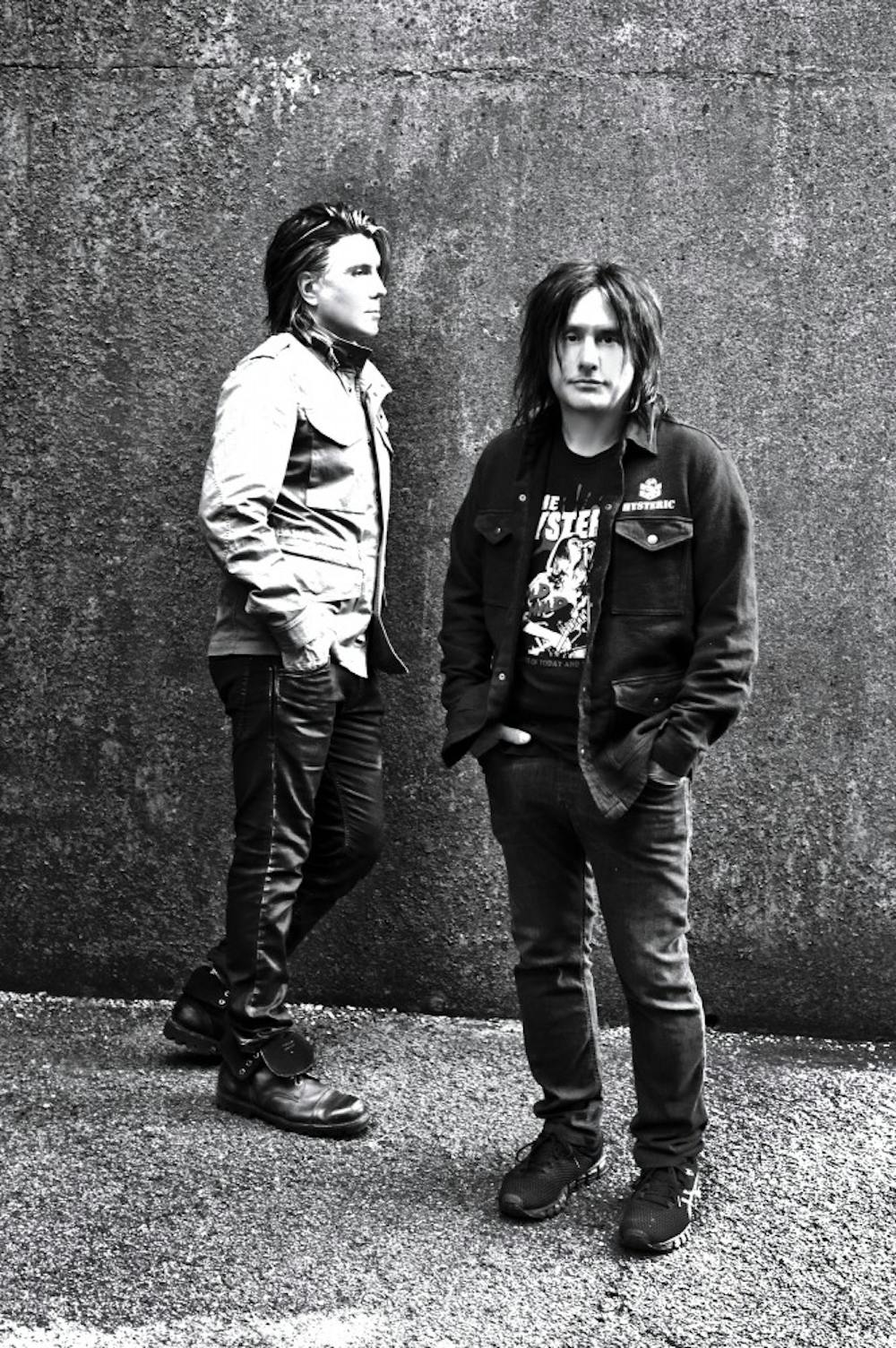Robby Takac sees excitement at home in Buffalo.
The Goo Goo Dolls, Takac’s band, are set to embark on an anniversary tour in support of “Dizzy Up the Girl.” The 1998 record is responsible for hits like “Slide” and “Black Balloon,” and projected the Goo Goo Dolls to the forefront of the mainstream. The album set the stage for a multitude of hit singles and albums throughout the ‘00s, cementing the Goo Goo Dolls as a fan favorite across the country.
But the Goo Goo Dolls always come home.
Ahead of a two night stand at Shea’s Performing Arts Center, The Spectrum spoke with founding member and bassist Robby Takac to discuss “Dizzy Up the Girl” and the current tour.
Q: Longevity has blessed the Goo Goo Dolls. In an era driven by rock reformations and nostalgia acts, what’s been the secret behind keeping both the band as a unit and the creative aspect going?
A: There’s a lot of bands that kind of got discouraged or something along the way or just lost their muse, and 25 years later decided it was a good idea to get back together again and go out and make some money. I don’t think this has ever been like that really. For us, it’s about how we get to the next day… what’s the next thing that’s in store. We never really went away. We’ve certainly experienced peaks and valleys in popularity, but I think we've maintained. I don't know if there's a secret other than [the] want to make it happen and see it happen. John and I have been driven most of our adult lives to see this thing through, and that’s what we’re doing here today… when we were kids we were out of our heads. We had a lot of issues and a lot of different directions that made the probability that this was going to be around 30 years later not that great. We were lucky enough to be able to overcome some of those [issues], and wind our way through some legal woes and personal things that are put in front of you while you’re trying to move forward with something. We’ve been able to navigate our way through some of that stuff and make some music that people want to hear which is f-----g awesome.
Q: Twenty years after ‘Dizzy Up The Girl,’ what, if anything, has changed most about the band? Was the success a surprise with that record?
A: We had already been through “A Boy Named Goo,” which was a distinctly different chapter in an already tenured career… it seems odd to call what we were doing back then a career but I guess in retrospect that’s what it was part of. I think when “A Boy Named Goo” came out, we kind of got a taste of all that stuff. No one expected that record to do as well as it did, or “Name” to do as well as it did. By that point, we were still kind of learning how to make records and how to write songs. We started with some friends in Buffalo and they were kind of putting us on the right track. For the first seven or eight years, none of us listened to anybody about anything … We felt just like “we know better than everyone.” John and I were just talking about this the other day. The first few producers we brought in, all we did was shut down the entire time because we thought we knew better for our band. We started to let go of that a bit with Lou Giordano when we started making “A Boy Named Goo.” We started giving him a little bit more. By the time we were done with that experience, I think we were ready to make “Dizzy Up The Girl.” It was time for us to make that record because we had learned all of these lessons up to that point. Rob Cavallo came in and essentially jumped in the band. I recall him having a guitar on for a lot of the rehearsals. We worked a lot on the songs and it was a very different experience for us. Then of course our world exploded with “Iris” before “Dizzy Up The Girl” even came out. So we eased into it -- we really eased into what we were doing.
Q: Tracks like “January Friend” bring a harder and more brash sound to the band, which even crosses over to your vocals. Is there a diverse mix of influences that you bring to each song that differs from Johnny?
A: I think part of it is you’re inspired by the things that inspire you. I think the things I know and the places I go are a little bit different than John. John has really become a songwriter’s songwriter if you will. I still sort of feel like I’m just a guy bashing out songs. You find your place and be the best you can in that place, and that’s sort of what I feel like.
Q: The Goo Goo Dolls shut down Niagara Square some years ago for the “Live in Buffalo” record. With the upcoming shows at Shea’s, what in your opinion is so special about playing at home? What attitude do you strive to bring to each performance?
A: We always try to do something awesome at home. Our first record release party was on the second floor porch of an apartment I had on the corner of Bird and Elmwood. We just set our gear up and played. The traffic stopped and the police came, it was an event, man. Our drummer ended up being arrested. That was in 1987. From that moment we were always like ‘Wow, man, these Buffalo shows have got to be awesome.’ We always try to do something fun and cool in Buffalo because Buffalo has always been awesome to us. So booking two nights in a row at the swankiest place in town –– Shea’s –– that’s pretty awesome for a bunch of bums like us. We’re pretty excited about it. Playing the whole ‘Dizzy’ record, we’ve never ever tried anything like this before… the whole rest of the set is not the stuff that people are going to expect. This is a much different show than what we’ve been bringing around for the last 20 years. This change in format kind of gave us this license to step outside of the comfort zone that we know people like to be in with us… with this new format coming out, the entire first set is the ‘Dizzy Up The Girl’ record. Then we take a break and we do a second set. I would say 80 percent is songs we haven’t played in 10 years and it’s really going to be fun. Hopefully we don't get food whipped at us.
Q: Your charity work with “Music is Art” celebrated its 16th anniversary just last week. What is the driving factor behind your work in Western New York? What do you hope to give back above all?
A: I want my kid to grow up in a town that is just bursting with creativity and I know Buffalo has that. I just want to do my best to add to that. “Music is Art” is most certainly not making that happen but we want to help. To get all of those creative people in one place -- so many of those people, say a quarter [of them]- are participants. People who are in bands and are artists and dancers, all of these people intermingling with each other can only be good. All of these bands - hip hop bands and polka bands and death metal bands -- can only be good… put them together and let’s see what happens. That’s what I love about Music is Art. Just kind of hypercharge for a day and bring attention to that community. I can’t wait until next year.
Brian Evans is the senior arts editor and can be reached at Brian.Evans@ubspectrum.com and @BrianEvansSpec.
Brian Evans is a senior English major and The Spectrum's senior arts editor.






